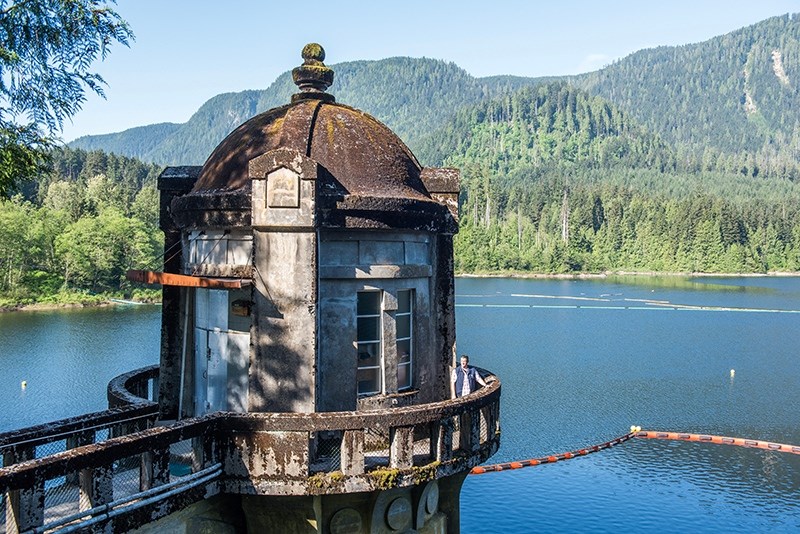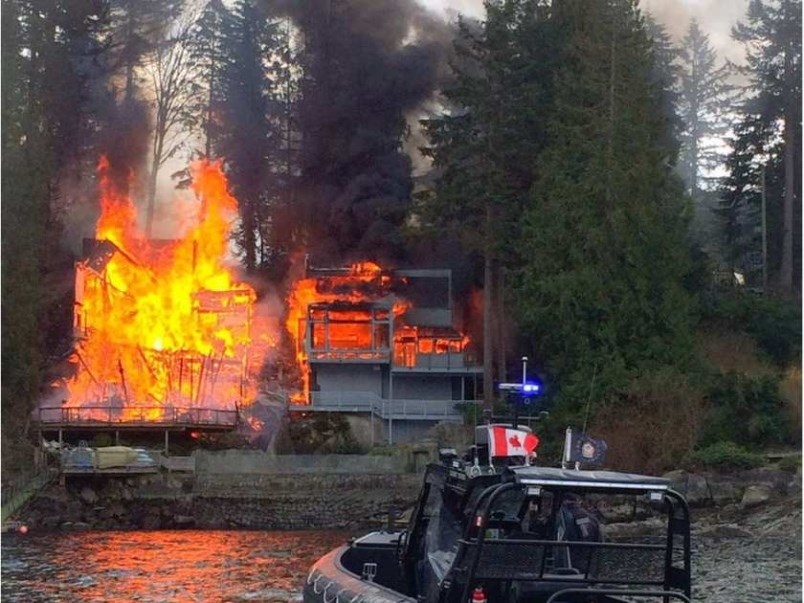Concerns the village of Belcarra is not moving fast enough to ensure it has proper water infrastructure to fight fires and protect the region has prompted the mayor of neighbouring Coquitlam to take the issue to Metro Vancouver.
Coquitlam Mayor Richard Stewart said, while he doesn’t have a position on what path Belcarra chooses to upgrade its water supply, all the surrounding communities have a stake in what happens in the small village.
“It would be the weak spot,” said Stewart, pointing to the small Metro Vancouver village north of Port Moody.
“It’s not just the safety of Belcarra which has one road in and out. It’s the ability of this sub-region, the Tri-Cities to manage.”
Stewart's comments come a day after Belcarra Mayor Neil Belenkie resigned in protest over allegations that two councillors broke conflict of interest rules in voting down a proposal to amend zoning bylaws in the village. If passed, the vote would have been a move towards granting land title to lots smaller than half an acre, the sale of which Belenkie said would have allowed the village to fund appropriate water infrastructure to fight fires.
Both councillors denied to the Tri-City News they were in a conflict of interest.
Without wading into any questions regarding the allegations of conflict of interest, Stewart said he’ll be looking for any way to keep Belcarra’s firefighting capacity on the Metro agenda, and will raise the issue this week.
“I’m trying to find out what Metro Vancouver has done and what we can do to help facilitate a solution or put pressure on finding a solution to get the proper firefighting water supply for that fire department,” he said.
Stewart said his fears start with a house fire on the woodland-urban interface, where forest meets human settlement. If a fire were to get out of control, it could spread downhill to Port Moody or Coquitlam — or into the upper reaches of the Coquitlam watershed, which acts as a catchment for much of the Metro region’s water.

Wildfires can compromise drinking water in several ways, according to the U.S. Geological Survey, either through direct burning where ash settles onto a reservoir’s surface, or over the longer term, when nearby hillsides, stripped of tree cover, experience more widespread erosion, contaminating rivers, streams and reservoirs with accumulated sediment.
In what could be a disaster for all of Metro Vancouver, Stewart worries a house fire starting in Belcarra could spread to the forest surrounding the Coquitlam Reservoir, set to become Metro Vancouver’s largest source of water in the coming decades as it overtakes the Capilano and Seymour watersheds in sheer capacity.
“If we lose one of the three reservoirs in a hot summer, we run out of enough drinking water,” he said. “All of our eggs are in those three baskets and we need to protect them.”



